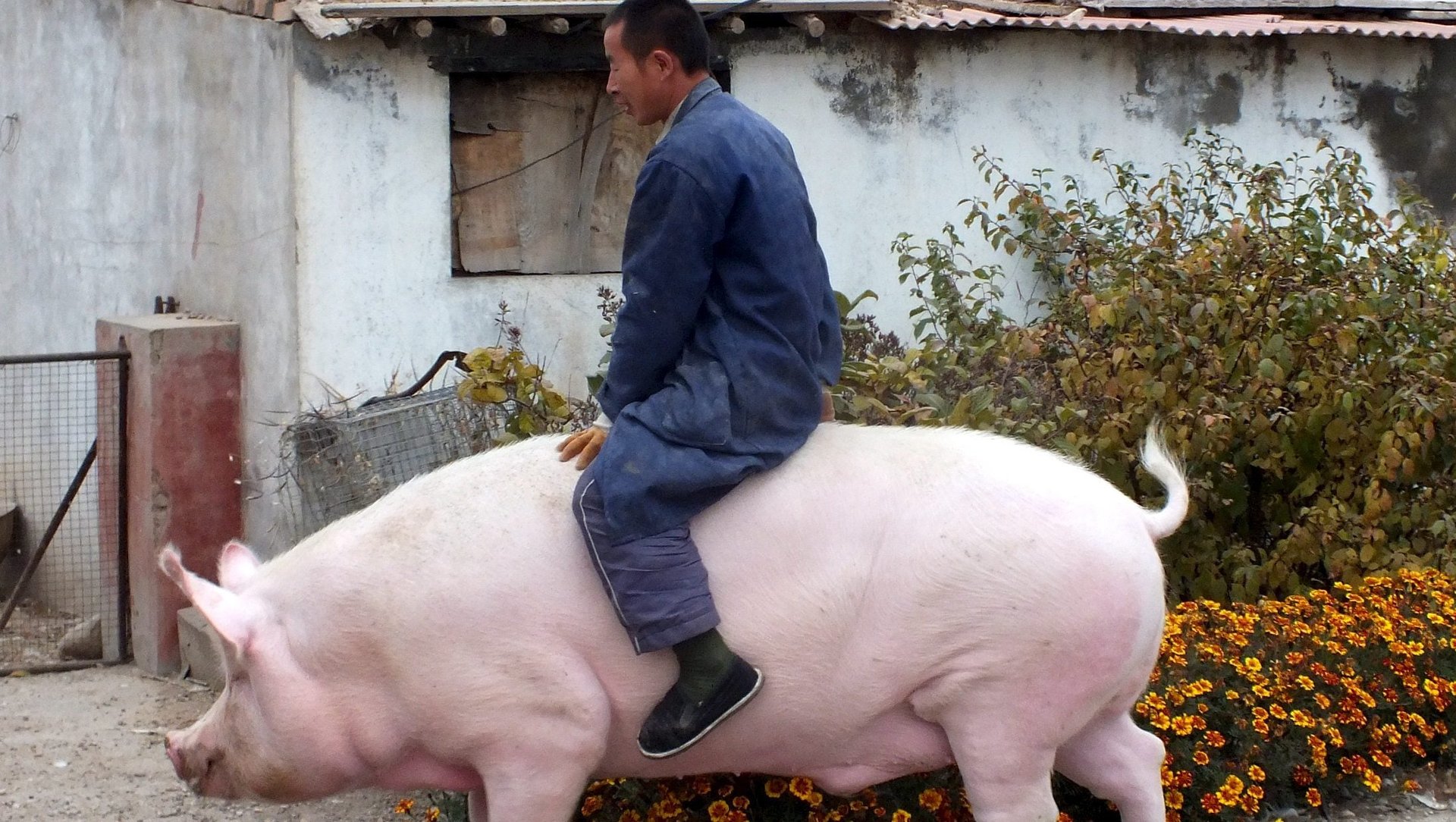You can soon short pigs in pork-loving China
There’s no doubting China’s love for pigs. The country consumes half of the world’s pork, and imports a record amount of the meat on top of its own herd of 700 million pigs (link in Chinese). The government is so worried about wild swings in pork prices that it turns to a strategic pork reserve to keep prices stable if necessary. Now it has decided to let the market have a bigger say.


There’s no doubting China’s love for pigs. The country consumes half of the world’s pork, and imports a record amount of the meat on top of its own herd of 700 million pigs (link in Chinese). The government is so worried about wild swings in pork prices that it turns to a strategic pork reserve to keep prices stable if necessary. Now it has decided to let the market have a bigger say.
On March 24, the Dalian Commodity Exchange (DCE) launched China’s first official pork-price index with the help of the agricultural ministry, according to a statement (link in Chinese) on the exchange’s website.
Pork has a heavy influence on food prices in China, to the extent that inflation data is often joked as the “China Pig Index.” Pork prices are also historically volatile in the country, in part because the market is dominated by small-scale farmers who are highly sensitive to price swings, which also makes it harder to create a price index. When pork supply is high, farmers may react to a drop in prices by slaughtering pigs for meat rather than breeding more piglets, for example, which months down the line will result in a shortage of pork, sending prices high again.
The “lean-type pork price index” is based on data from 89 large-sized pork suppliers from across 16 regions in China, which account for 32% of the country’s supply, the exchange says. The index will update daily to reflect the nation’s spot pork-price. It also lays the foundation for introducing hog futures contracts in the near future, the exchange says, without specifying a launch date.
A futures contract is an agreement to buy a commodity or another asset at a specific price but have it delivered and paid for at a later date. It allows buyers and sellers to hedge against risks. Speculators can also use derivatives like futures contracts to bet on price changes.
The Chicago Mercantile Exchange has the world’s most-traded hog futures. Bloomberg first reported last October that the DCE is planning to offer hog futures this year. A popular hog futures contract on the DCE could generate close to $3 trillion in trading value annually, 10 times the value of the animals traded each year in China, Jim Huang, CEO of China-America Commodities Data Analytics Inc., told the business newswire at the time.
China has been carefully rolling out new commodity-related financial products in recent years, amid concerns that speculators could cause price swings and push up commodity prices. Today (March 31) the DCE launched the country’s first exchange-traded commodity options product for soymeal, a key ingredient in tofu and animal feed.